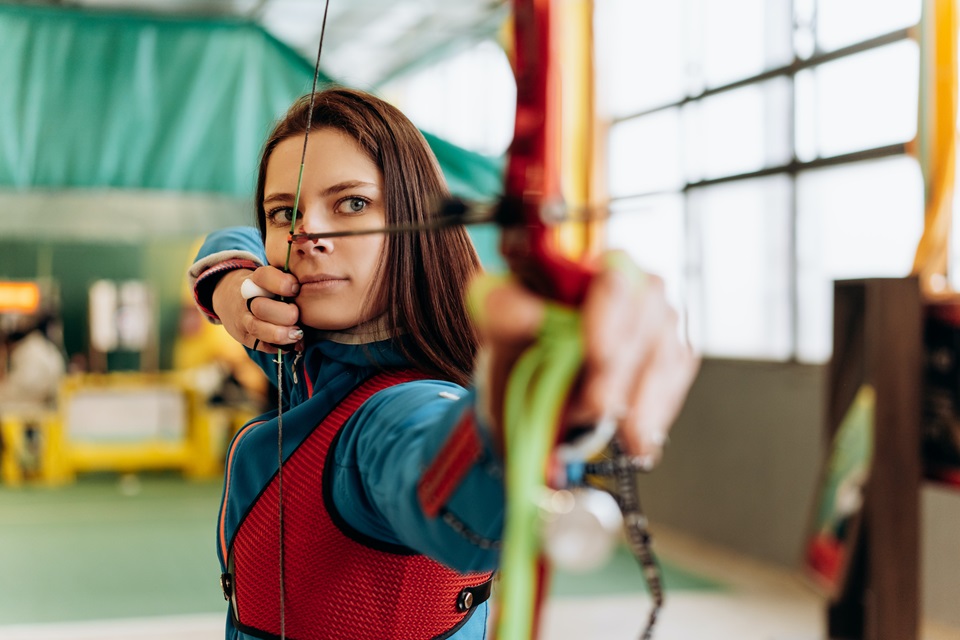Starting an archery career is a thrilling endeavor, but prospective archers should think about a few key factors before hitting the range. Enrolling in an archery course may be a fulfilling experience. Still, a smoother and more pleasurable start to this age-old and interesting activity is guaranteed when you are well-prepared. This post will cover five essential topics to be aware of before enrolling in an archery lesson, offering helpful advice for those just starting in the sport.
Table of Contents
Understanding Archery Equipment
Understanding the fundamentals of archery gear is essential before diving into the nuances of archery methods. Learn about the parts of a bow, including the riser, string, and limbs. Make a distinction between the several kinds of bows available, such as a compound bow, spiral back, and longbows, each suited to a particular set of requirements and preferences. Grasp the role and purpose of accessories like stabilizers, quivers, and sights is essential to have a thorough grasp of your archery equipment. This information not only boosts self-assurance but also sets the stage for conversations with teachers about tailored equipment suggestions based on their tastes.
Safety Protocols & Etiquette
Since safety is a top priority in the sport of archery, students must familiarize themselves with basic safety procedures and manners. Students must be taught appropriate range behavior, including how to use bows and arrows properly, before the initial shot is even nocked. Learn the range orders and follow the safety protocols, which include keeping an appropriate distance from targets and never pointing a bow at anybody. Archery etiquette also includes consideration for the teacher, other archers, and the equipment. This base of decency and safety provides a safe learning atmosphere and cultivates a supportive archery community.
Choosing The Right Class & Instructor
The choice of archery teacher and class has a big impact on what students learn. Examine the local archery clubs or schools, considering the available resources, the size of the class, and the method of instruction. Seek out teachers who have a plethora of expertise in instructing and practicing archery, along with recognized qualifications. Think about whether the course will help you achieve your objectives, whether they are skill improvement, recreational fun, or a route to competitive archery. Before you begin, have a conversation with the teacher to go over your goals and make sure everyone is on the same page regarding your archery adventure. A class and instructor that complement one another improve learning and make each lesson more fulfilling and pleasurable.
Establishing Realistic Expectations
Setting reasonable goals is essential for those who are new to archery. Recognize that archery is a skill-based sport that calls for perseverance and regular practice to get better. While archers in films and other media may appear to achieve perfect accuracy with ease, in actuality, proficiency requires patience and commitment. Accept the learning curve, acknowledge little accomplishments, and see setbacks as chances for improvement. Understand that every archer develops at their speed and that hitting particular skill milestones is not as important as the adventure itself. Students develop a positive mentality that encourages resilience and tenacity in their pursuit of archery skills by setting reasonable objectives.
Physical Conditioning & Preparation
Although less physically taxing than some other sports, archery nevertheless needs some level of physical training and conditioning. Gain a foundation of strength in your upper and core muscles since archery uses a lot of the muscles involved in pulling and maintaining a bow. Include stretches that will increase your range of motion, which is essential for developing good shooting form. Frequent aerobic activity increases endurance, which helps archers stay focused throughout extended shooting sessions. In addition, consider any physical limitations you may have had in the past. Let the teacher know if you need help customizing a method to meet your needs. Students who prepare physically are certain to have the foundational fitness needed for an engaging and long-lasting learning experience when it comes to archery.
Conclusion
Taking a step into the world of archery instruction involves developing your attention, accuracy, and skills. Prospective archers may create the foundation for a fulfilling and successful journey in archery by learning about the equipment, adhering to safety procedures, selecting the appropriate class and instructor, having reasonable expectations, and physically preparing. Understand that archery is more than just hitting the target when you enter the range with knowledge and passion.



